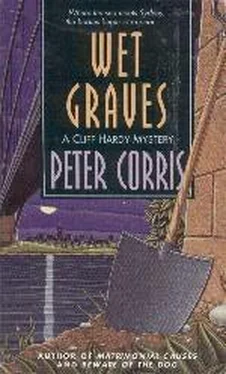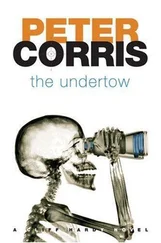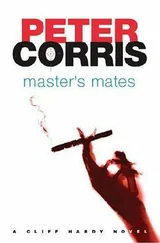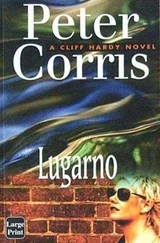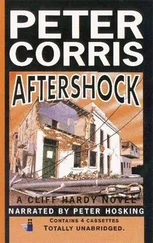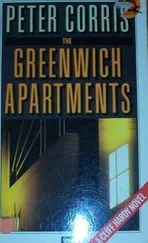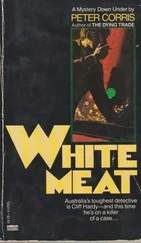Peter Corris - Wet Graves
Здесь есть возможность читать онлайн «Peter Corris - Wet Graves» весь текст электронной книги совершенно бесплатно (целиком полную версию без сокращений). В некоторых случаях можно слушать аудио, скачать через торрент в формате fb2 и присутствует краткое содержание. Жанр: Криминальный детектив, на английском языке. Описание произведения, (предисловие) а так же отзывы посетителей доступны на портале библиотеки ЛибКат.
- Название:Wet Graves
- Автор:
- Жанр:
- Год:неизвестен
- ISBN:нет данных
- Рейтинг книги:5 / 5. Голосов: 1
-
Избранное:Добавить в избранное
- Отзывы:
-
Ваша оценка:
- 100
- 1
- 2
- 3
- 4
- 5
Wet Graves: краткое содержание, описание и аннотация
Предлагаем к чтению аннотацию, описание, краткое содержание или предисловие (зависит от того, что написал сам автор книги «Wet Graves»). Если вы не нашли необходимую информацию о книге — напишите в комментариях, мы постараемся отыскать её.
Wet Graves — читать онлайн бесплатно полную книгу (весь текст) целиком
Ниже представлен текст книги, разбитый по страницам. Система сохранения места последней прочитанной страницы, позволяет с удобством читать онлайн бесплатно книгу «Wet Graves», без необходимости каждый раз заново искать на чём Вы остановились. Поставьте закладку, и сможете в любой момент перейти на страницу, на которой закончили чтение.
Интервал:
Закладка:
Paul had forgotten his half-drunk coffee. He was settled back in his chair with his memories. Knowing the sharpness of his mind and the clarity of his perceptions, it was reasonable to hope that the memories would be distinct. “What were the working conditions like?” I said.
“By today’s standards, terrible, and pretty bad even by the standards of the 1920s and 1930s. You have to remember that it was bloody hard to get work then. Men’d do amazing things for a couple of quid a week when they had mouths to feed.”
“I’ve never thought about it,” Pat said. “The bridge has always been sort of… there.”
“Well, it wasn’t. It was the most amazing thing to see those two bloody great arches grow out on either side and finally join up. It seemed, I don’t know, like something almost impossible for men to achieve. It made a very deep impression on me, even though I was so young. My Dad was a bit of a Bolshie, and he used to talk about the cost of the thing in human terms.”
“Deaths and injuries,” I said.
“Yes. There was nothing in the papers about the injuries, except the occasional bit of bullshit from the managers.”
“Like what?” I asked.
Guthrie made a derisive, snorting sound. “Oh, about how the workers were like soldiers going into battle, and casualties were inevitable. That sort of thing. My dad used to read stuff like that out from the papers. It made him angry. I saw things that make me angry to think about them, even now.”
“What, Paul?” Pat had put her cup down and was staring at her husband.
Guthrie rubbed his hand across his face. He looked around his comfortable, well-appointed sitting room as if he could hardly believe in the reality of his surroundings. “One thing in particular. I can see it now, and I still don’t like to think about it. Dad had taken me to the fabrication workshop. It was where Luna Park is now. They built big sections and took them out on the barges. They used a hot-rivet method.”
Pat shook her head. “You’ve lost me.”
Guthrie’s eyes seemed to retreat into his skull. “They heated the rivets up, almost to liquid point then they spooned them across to the rivetter who had heavy gloves and tongs. He lifted the bit of red-hot metal out and banged it into place. It was incredibly dangerous.”
“This is in the workshop,” Pat said, “not…”
“They did the same up on the structure. Tossed this red-hot metal around as if it was putty.”
“It sounds sort of… Dickensian,” Pat said.
Guthrie struggled up out of his re-collection. “How do you mean, love?”
“Well, like workhouses, sweated labour, children down the mines… that sort of thing.”
Guthrie shook his head. “No. It was nothing like that. Not as I recall it. The reverse, if anything. The men were happy, cheerful, laughing. Anyway this time I remember, a rivet jumped out of the dish, or slipped from the tongs. I don’t know. It happened so quick. The rivet hit him somewhere around here.” Guthrie touched his thigh. “And it burned through his overalls and went down inside them. He was screaming and screaming… Dad grabbed me and pulled me away.”
Ray Guthrie’s head appeared around the door. “We’re on,” he said.
15
Three hours later I was sitting in a boat under the Sydney Harbour Bridge. Not exactly under, a bit to the side and near the north shore, but close enough. Aboard were Ray Guthrie and another man whom he’d introduced as Milo. Like Ray and me, Milo was wearing a parka and a woollen knit cap and trying to expose as little of himself to the cold air as possible. It had been very cold on the run from North-bridge to this point. Here, somewhat sheltered from the wind, it wasn’t so bad. But the people in the restaurants-the Imperial Palace, picked out in lights, and Doyles at the Quay, spelled out in blue neon-were showing a lot more sense than us.
I was mindful of Pat Guthrie when I asked Ray how dangerous the operation was likely to be.
“How d’you mean?”
“Oh well; sharks, getting tangled up in something under the water, electric cables…”
Ray laughed. “Hear that, Milo? Electric cables. Listen, Cliff, we’ve got only two problems.”
I could hear Milo chuckling as he did something with ropes. “They are?”
“One, the water police come along and ask us what we’re doing. That’s your department.”
“Two?”
“Some amateur could come along and hit us. That’s Milo’s department.”
“Ready, Ray?” Milo said.
“Yeah.” Ray went into the little cabin of the boat and came back a few minutes later in wetsuit and flippers. Milo helped him to strap on a tank while they adjusted his goggles and talked about pressure and currents.
I stared around me, feeling extraneous. I could hear a pontoon mooring creaking over on the Quay side and there was a red light blinking on the near shore. I couldn’t identify the light. The city loomed up on both sides, towers of partly lit steel and glass. The surface of the water was dark but fairly calm. At least I wasn’t asking him to go down in the middle of a howling gale. I still didn’t feel good about it, though. What would I say to Paul and Pat if…?
“Cliff,” Milo said, “we got no problem about the light.” He gestured to a tube Ray had tucked in his belt and a camera enclosed in a rubber case and fastened to his arm with a heavy elastic strap. “That’s an Ikelite modular job-the best. Hard to say what the visibility’ll be like. Could be a couple of metres, could be more. Depends on the particles in the water. If it’s bad the light won’t help much. Be like headlights coming at you through a dirty windscreen. But we could be lucky. Pictures might be a bit of a problem.”
“Do the best you can, Ray,” I said. “You might not see anything anyway.” I’d explained to Ray that I wanted him to explore the area immediately under the bridge for as much of the four-hundred-metre stretch as possible, but concentrating on the middle. I told him what he was looking for; it didn’t seem to worry him. I didn’t ask him how he’d know where he was once he was under the water. Apparently it wasn’t a problem. Ray dipped his mask in a bucket of water and flapped it around. Then he pulled it over his face and took two froggy steps to the side of the boat. I thought he’d do a back flip, like Lloyd Bridges used to do in Sea Hunt, but he just climbed over and slipped down into the dark lapping water.
A bit of threshing on the surface and he was gone. Milo started the engine and the boat puttered across to the Milson’s Point shore. “Can’t stick around out there like a shag on a rock.”
“Won’t he need a marker or something? How’s he to know where he is?”
“He’ll come up to five metres or so and look up at the bridge lights. Vertical visibility under water’s better than horizontal. He’ll be right. Fifteen metres, twenty at the most. Piece of piss. Don’t look so worried, Cliff. Ray’s a top scuba man. Top.”
“What about you, Milo?”
“I’m pretty bloody good, too.”
“You’d better be,” I said, “because there’s no way I’m going down there if he gets the cramp.”
Milo laughed. “If he gets cramp he comes up. It’s only fifteen bloody metres. He’s not going to get the bends.”
I grunted. “People drown in the bath.”
“Jesus, you’re a happy one. Australians’re supposed to be cheerful bastards.”
“No,” I said, “that’s Greeks.”
He laughed again. I was the funniest act on the harbour that night. It was too late for the ferries and there was nothing else moving on the water. I could hear the intermittent rumble of traffic on the bridge above and an occasional crash from the container wharf at Mort Bay. Milo lit a cigarette and hummed as he made adjustments to the line hanging into the water. He checked his watch and started the engine.
Читать дальшеИнтервал:
Закладка:
Похожие книги на «Wet Graves»
Представляем Вашему вниманию похожие книги на «Wet Graves» списком для выбора. Мы отобрали схожую по названию и смыслу литературу в надежде предоставить читателям больше вариантов отыскать новые, интересные, ещё непрочитанные произведения.
Обсуждение, отзывы о книге «Wet Graves» и просто собственные мнения читателей. Оставьте ваши комментарии, напишите, что Вы думаете о произведении, его смысле или главных героях. Укажите что конкретно понравилось, а что нет, и почему Вы так считаете.
